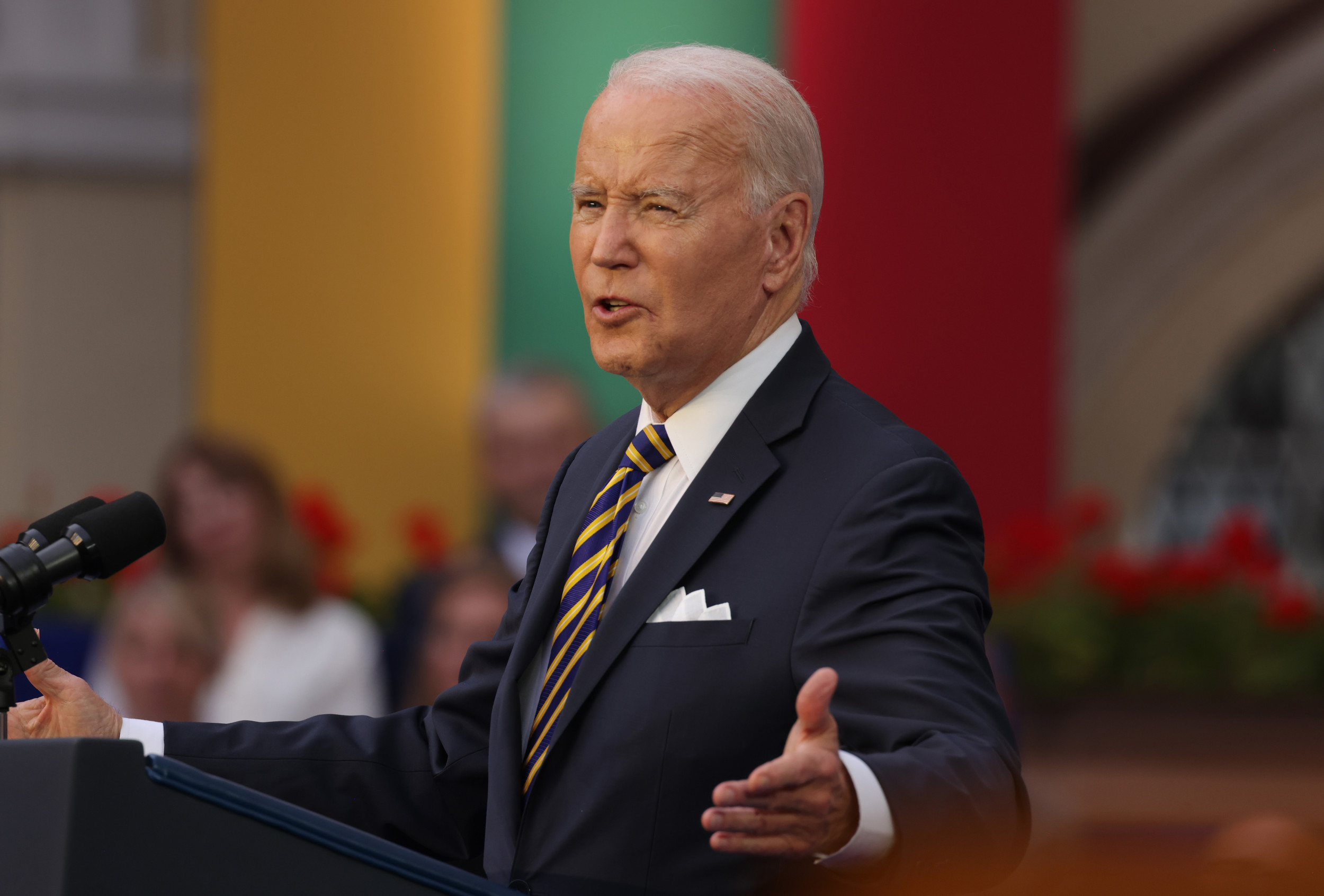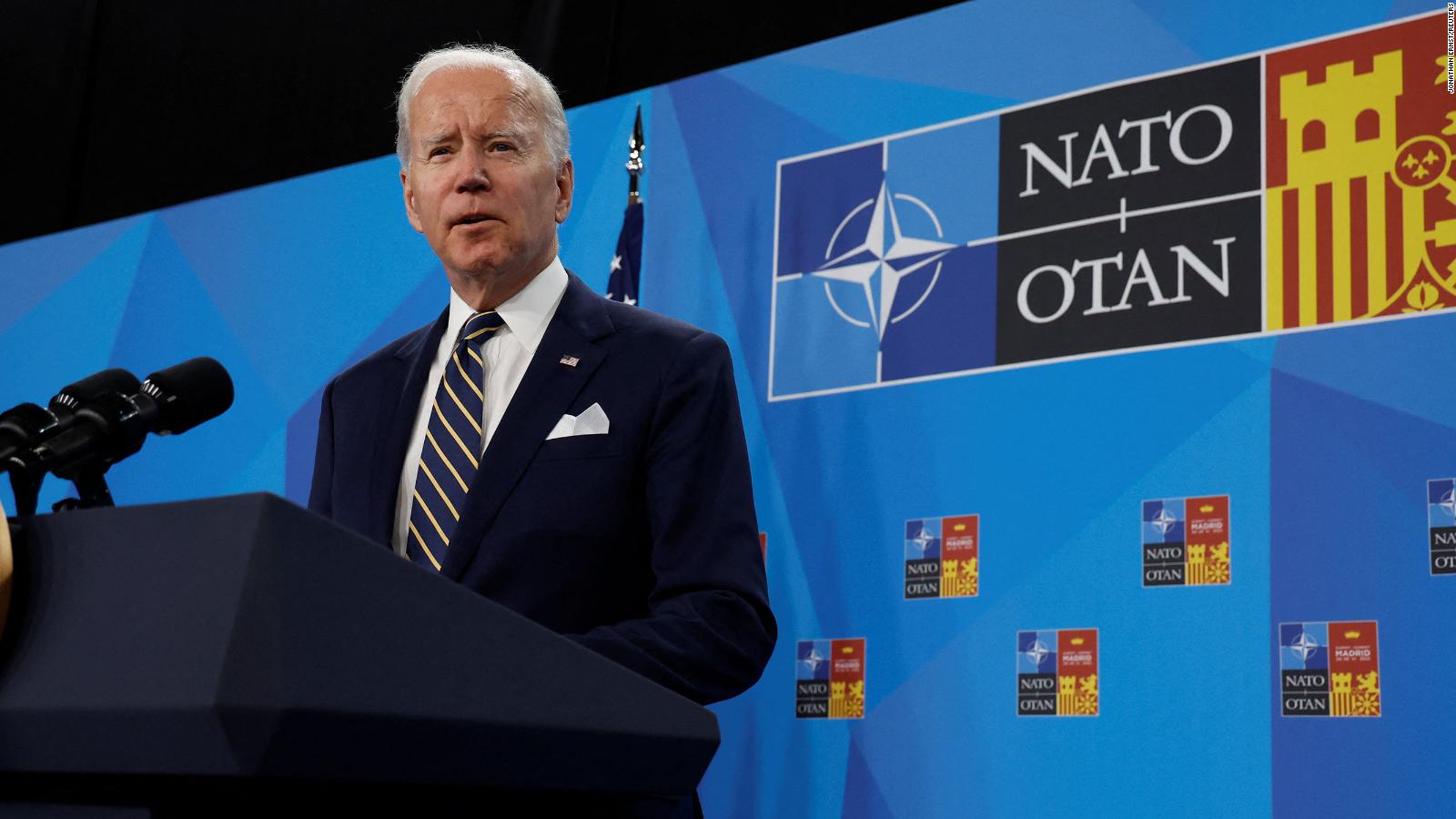Biden’s Role in NATO

Biden nato – Since taking office, Biden has prioritized strengthening NATO’s unity and cooperation. He has engaged in numerous diplomatic efforts to reinforce the alliance and address the security challenges facing its members.
Biden’s Efforts to Strengthen NATO’s Unity and Cooperation
Biden has emphasized the importance of collective defense and burden-sharing within NATO. He has encouraged member states to increase their defense spending and participate in joint military exercises. Biden has also sought to enhance political coordination among NATO members, particularly in response to Russia’s aggression in Ukraine.
In a decisive address, President Biden emphasized the unwavering commitment of the North Atlantic Treaty Organization (NATO) to safeguarding its members. His biden nato speech underscored the enduring importance of collective security, reaffirming NATO’s resolve to confront any threats to its sovereignty and territorial integrity.
Biden’s Initiatives to Address Security Challenges Facing NATO Members
Biden has taken several initiatives to address security challenges facing NATO members. He has increased US military presence in Europe, deployed additional troops to the Baltic states, and provided military assistance to Ukraine. Biden has also worked with NATO allies to develop a new Strategic Concept that will guide the alliance’s response to emerging threats.
Biden’s commitment to NATO is unwavering, and his recent statements reaffirm his belief in the alliance’s importance. The organization’s collective defense mechanism, enshrined in Article 5 of the Washington Treaty, provides a strong deterrent against aggression. Biden’s NATO policy is a continuation of the long-standing bipartisan support for the alliance, recognizing its vital role in maintaining peace and security in Europe.
NATO’s Response to Russia’s Invasion of Ukraine: Biden Nato

Following Russia’s full-scale invasion of Ukraine in February 2022, NATO responded swiftly and decisively. The alliance activated its collective defense mechanisms, imposed severe sanctions on Russia, and provided substantial military, political, and economic support to Ukraine.
Military Measures
NATO members deployed additional troops, ships, and aircraft to Eastern Europe to strengthen the alliance’s eastern flank and deter further Russian aggression. The alliance also provided Ukraine with a range of defensive weapons, including anti-tank missiles, air defense systems, and drones.
Political Measures
NATO condemned Russia’s invasion as a clear violation of international law and called for an immediate ceasefire and withdrawal of Russian forces from Ukraine. The alliance also suspended cooperation with Russia within the NATO-Russia Council and expelled Russian diplomats from NATO headquarters.
Economic Measures
NATO members imposed a series of economic sanctions on Russia, targeting the country’s financial system, energy sector, and access to key technologies. These sanctions were designed to cripple Russia’s economy and pressure its government to end the war.
Challenges and Opportunities
NATO faces several challenges in deterring further Russian aggression. The alliance must maintain a credible military presence in Eastern Europe while avoiding direct confrontation with Russia. NATO must also coordinate closely with its partners, including the European Union and the United States, to ensure a united response to Russian threats.
Despite these challenges, NATO has also identified opportunities to strengthen its deterrence posture. The alliance is seeking to expand its membership to include Finland and Sweden, which would further bolster NATO’s presence in the Baltic Sea region. NATO is also investing in new technologies, such as artificial intelligence and cyber defense, to enhance its capabilities.
NATO’s Future Role in European Security
The future of European security faces several potential challenges, including the ongoing threat from Russia, the rise of new technologies, and the growing interconnectedness of the global economy. NATO is adapting to these challenges by developing new plans and initiatives, and by strengthening its partnerships with other organizations in the Euro-Atlantic region.
One of the most important challenges to European security is the ongoing threat from Russia. Russia has been accused of interfering in elections, conducting cyberattacks, and using military force to intimidate its neighbors. NATO has responded to this threat by increasing its military presence in Eastern Europe and by developing new plans to deter Russian aggression.
Another challenge to European security is the rise of new technologies. New technologies, such as artificial intelligence and autonomous weapons, could have a profound impact on the way that wars are fought. NATO is working to develop new policies and strategies to address the challenges and opportunities posed by new technologies.
The growing interconnectedness of the global economy is also a challenge to European security. The global economy is increasingly interdependent, and events in one part of the world can have a ripple effect on other parts of the world. NATO is working to develop new ways to cooperate with other organizations to address the challenges and opportunities posed by the global economy.
NATO’s Plans and Initiatives to Adapt to Evolving Threats, Biden nato
NATO is adapting to the evolving threats to European security by developing new plans and initiatives. These plans and initiatives include:
- The NATO Enhanced Forward Presence (eFP): The eFP is a multinational force that is deployed to Eastern Europe to deter Russian aggression. The eFP is made up of troops from several NATO countries, including the United States, the United Kingdom, and Germany.
- The NATO Cyber Defense Center of Excellence: The NATO Cyber Defense Center of Excellence is a center of expertise that helps NATO members to improve their cyber defenses. The center provides training, exercises, and research on cyber defense.
- The NATO Innovation Hub: The NATO Innovation Hub is a platform that brings together NATO members, industry, and academia to develop new technologies for NATO. The Innovation Hub focuses on developing technologies that can help NATO to address the challenges of the future.
NATO’s Role in Promoting Stability and Cooperation in the Euro-Atlantic Region
NATO plays an important role in promoting stability and cooperation in the Euro-Atlantic region. NATO provides a forum for its members to consult on security issues and to develop common policies. NATO also works with other organizations in the Euro-Atlantic region, such as the European Union and the Organization for Security and Co-operation in Europe (OSCE), to promote stability and cooperation.
NATO’s role in promoting stability and cooperation in the Euro-Atlantic region is essential for the security of Europe. NATO provides a forum for its members to consult on security issues and to develop common policies. NATO also works with other organizations in the Euro-Atlantic region to promote stability and cooperation.
